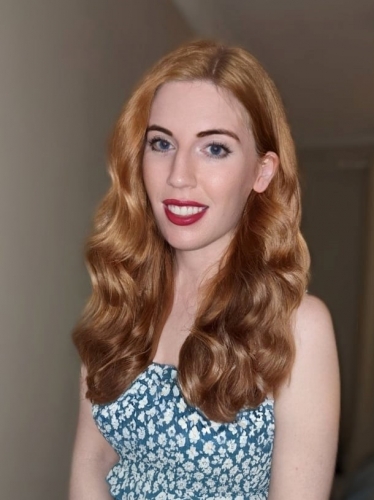One doctor has opened up about the profound effects that burnout has had on her life, and has called for urgent action to support the frontline health workers we depend on - who are struggling more than we know.
Dr Elizabeth Berryman, Founder and Director of psychological health and safety platform,
chnnl, had spent over 10 years working as a healthcare professional – first as a nurse and then as a doctor.
Subscribe for FREE to the HealthTimes magazine
“I've been through two periods of my life where I have experienced burnout", she told
HealthTimes.
“The first was actually when I was a graduate nurse, back when I was 20 years old and I was working in the emergency department. And at that time there was huge patient overload. There was what we called ramping, which was ambulances out the door. I think we had 12 or 13 ambulances at one point waiting to get into the hospital.”
“It was chaos. For a new graduate nurse, you're supposed to have four patients – I was having up to 10. And yeah, so it was a huge high patient acuity load and very little support.”
FEATURED JOBS
Frontline Health Melbourne
Frontline Health Melbourne
“And as a new nurse, you're supposed to have a lot of support. That's when I first started to experience some of the, what I now recognise as burnout symptoms, where you start becoming a bit cynical about work. You start becoming a bit down in your mood. You don't want to socialize with your friends and family."
“And also, there’s the shift work – at the time, it was four 12-hour night shifts in a row.”
“After that, I just went to the outback as my antidote to burnout. And thank goodness for me, it worked. And I really loved my time in the outback, and it was quite restorative and helped me to re-centre what I wanted to do in my life, which was to go to medical school.”
“The second burnout was when I was training to be a doctor and I was a fourth year medical student. And it was because of the toxic workplace environment that contributed to that burnout."
“I was what you would term a high performer - a high performing student. And it was a bully in that department who caused that particular burnout.”
“And it was really quick. I went from being on top of the world, so excited to be following my dream. And then, after six weeks of bullying, I wanted to quit and I wanted to walk out. I don't want to do this any more. That burnout happened really quickly and that was quite a surprise.”
With 76% of healthcare workers reporting exhaustion and burnout, 93% experiencing stress, and 86% experiencing anxiety in the fight against COVID-19 (Accenture), Dr Berryman said that we have another crisis on our hands that must be addressed.
She highlighted how burnout doesn’t just take a physical toll, but an emotional one.
“First, it’s the sleep. You are working shift work. Those are anti-social hours. You get paid penalty rates but really, it's nothing. And you don't get to see your normal friends and family. You miss out on going to friend's birthdays. You miss out on seeing family events because you are working.”
“You don't have any autonomy or control over your shift work. This is what it is, and you have to turn up to work. And then there's always overtime. We were expected to turn up an hour before shift, and then you never finish on time. You never get any lunch breaks.
“There's a big joke about having a bladder – you’re used to not going to the toilet because you just don't have time. You clock on and you're at it.”
“In New Zealand, they did a national survey with the senior doctors and they found that 54% had experienced burnout. And that was in the senior medical group. They have done similar studies with junior doctors and found that it was even higher.
“And no surprises – women are more affected than men. And especially, younger women - the 20 to 30 age group are the most high-risk group for burnout. Then it peaks again later – the closer women are getting to retirement”.
“Recently, I’ve been looking at some of the newer statistics coming out. And they're saying now that internationally, it's looking like 80% of people are experiencing burnout.
Dr Berryman said she’s unsure about a direct correlation between COVID-19 and increased healthcare worker burnout.
“I have a hunch that it is worse than before COVID-19 And COVID is definitely added to that, absolutely. But I wonder whether it would've gotten to these levels of burnout anyway.
She called for immediate action to reduce the strain placed on frontline workers.
“First and foremost, we need to invest in our workforce. And not just our healthcare workforce, but our workforces in total.”
“The Australian government previously released a productivity report showing that we had one of the lowest productive societies. And that's because we haven't looked at this workforce and how we can support people to be their best selves in and outside of work.”
“Number two would be psychological safety. This is a wide, encompassing issue, but we know that this is the number one thing for high performing teams. And it also is really good for people's personal wellbeing. It has a flow on effect to the community.
“I’ve heard anecdotally that there was one hospital that had 70 staff leave in one day”, Dr Berryman said.
“I think that people are just standing up for themselves and going, ‘no, we're not going to work in these conditions anymore. We're not going to work double shifts. We're not going to turn up for a handover that we're not paid for.’”













